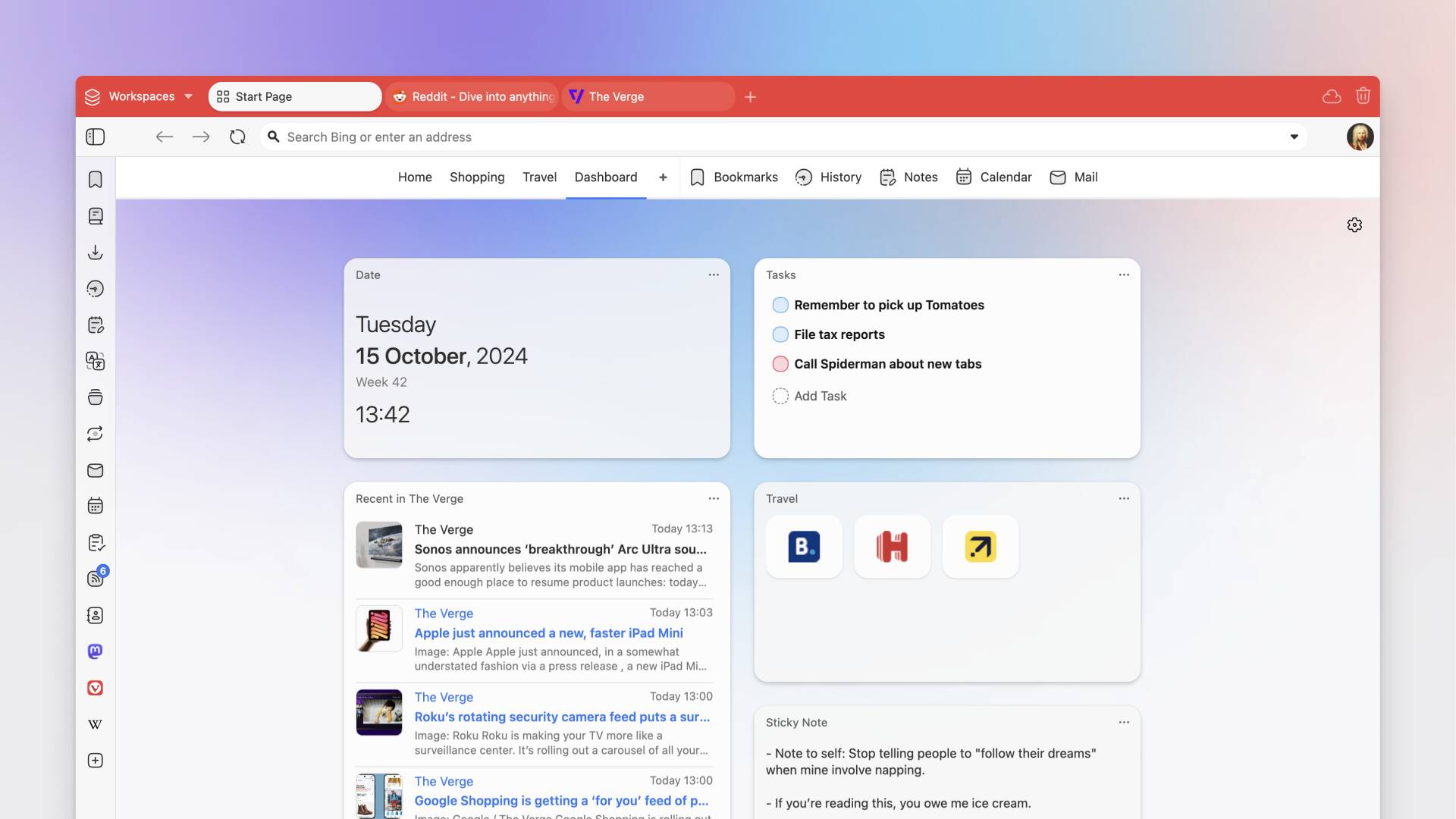Mozilla were really ahead of their time when they implemented detached tabs.
In fact Opera were more ahead of their times, because they were the first to add tabs and had a lot of features that we now take for granted. I know this because I used Netscape browser (before they were called mozilla) and Opera 4.x at the time.
Opera were visionary. But I was only referring to detached tabs, which Mozilla implemented, Chrome followed and now Vivaldi.
What are detached tabs? Sandboxed? Dragged out into their own window? Genuine question
You see how the tabs don’t connect to the address bar

Wait so it’s just a design choice? I mean I get they were the first but really, who really cares about stuff like that?
Mozilla get so much flack of late, it’s good to balance that and give them credit where it’s due.
The new software design trends is to break free for skeumorphism completely. “tabs” are no longer tabs, they are buttons or whatever. Firefox is doing the same.
Mozilla make Firefox
OK?
For those who want the old tabs back: under settings -> appearance, you can set the ui density to compact (sorry, can’t tell you the exact name, I have my system set to German)
I know all the reasons I should be on Firefox, but I just love Vivaldi so much.
I’ve been using it for years and have it tuned perfectly for anything I do. It’s feature rich, and fast.
Occasionally there are apps or even tools in life where you are like holy shit, this is exactly made for how I want to do a task/job.
My gestures are so ingrained in me, sometimes I catch my hand moving the mouse to perform an action in another unrelated app. My brain notices instantly but can’t stop my hand from trying to do it anyway. It makes me laugh.
Yeah, as long as Firefox (or a fork) doesn’t have native gestures, I can’t fulltime swap to it. Gestures addons are not the same. Anyone that used vivaldi (or opera) for any serious length of time knows what I mean.
Some months ago they completely fucked up their address bar suggestions to the point where I have tried again to move to another browser. I’d prefer them to fix that before updating their UI.
Fucked it up how?
No matter how I set it up it gives me suggestions to specific pages I don’t want instead of the base domain.
That sounds terrible. Can you turn off suggestions all together? Sorry, I don’t use Vivaldi desktop, so don’t really have a clue on how to help you
You can change that in settings.
Hey check out this turd I polished.
How would you say it’s a turd? I assume because it’s still chromium based, but I don’t want to put words in your mouth.
It’s my browser of choice for my work computer but I do run Firefox at home and on mobile.
Yeah, chromium based means adblockers cannot work as effectively.
deleted by creator
I found a Vivaldi blog post on this topic from 2022: https://vivaldi.com/blog/manifest-v3-webrequest-and-ad-blockers/
Will the Vivaldi Ad Blocker be affected by the Manifest V3 changes?
I made some architectural choices early on that I believe should keep it functional, regardless of the Manifest V3 changes. Of course, there is always a possibility that the underlying Chromium architecture will change now or in the future, forcing us to do some extra work to keep this working. > Hopefully, a more in-depth description of the architecture and some of the facts surrounding the Manifest V3 changes should help to show why I believe that our implementation is safe for the time being.
There’s a popular phrase “you can’t polish a turd”. The meaning in this case being that if you put a nice UI on chromium it’s still chromium.
I am familiar with the phrase. And I was correct assuming you were referring to chromium as the culprit.
In case anyone didn’t know, you actually can polish a turd.
I’m not going to watch a video about polishing a turd but I assume the turd remains a turd.
You’ll not I didn’t actually make the claim that its not possible.
Now if only they could add “swipe to go back” to their Linux client. Only thing keeping me off of Vivaldi these days.








